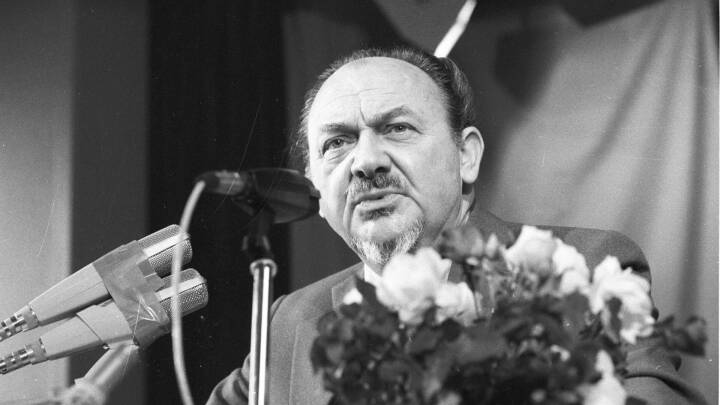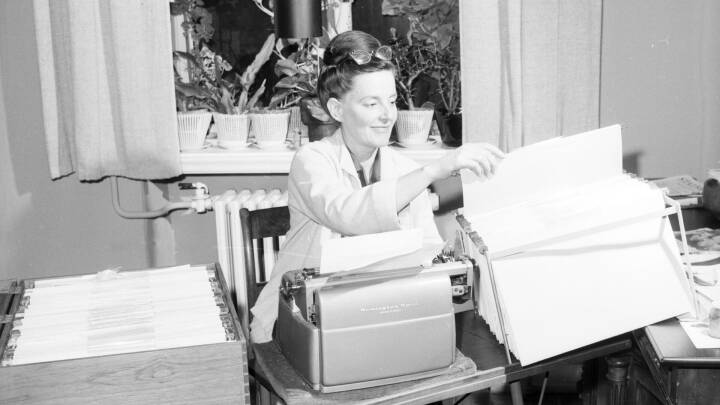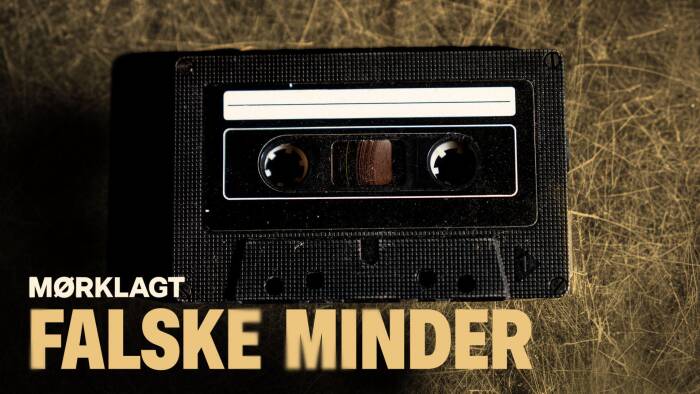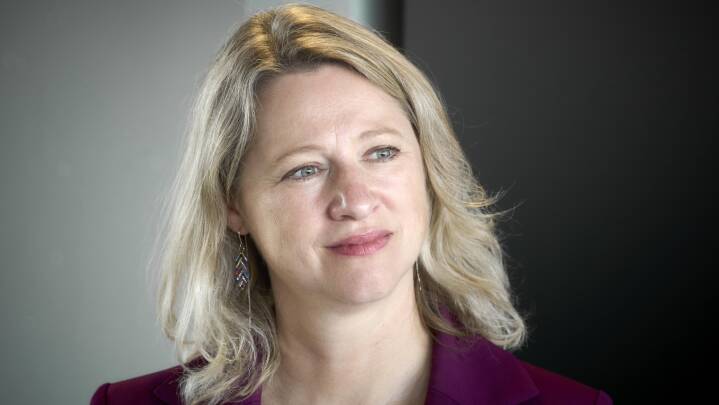'The state was more active than we knew': The Foreign Service pushed to have children adopted to Denmark
In Sri Lanka, Bangladesh, South Korea and Lebanon, Danish embassies were involved in adoption cases, DR reveals in a new podcast.
In the 1970s and 1980s, Danish embassies and consulates around the world controversially helped adoption agencies complete adoptions of foreign children to Denmark.
Earlier today, DR reported how the Danish Foreign Service in the 1980s was involved in adoptions from Lebanon, which, according to experts, were completed through bribery and child trafficking.
But it's not just Lebanon that the state has been involved. The new podcast series 'Falske Minder' reveals that, according to experts, the Danish Foreign Service assisted the agencies with adoptions from Sri Lanka, Bangladesh and South Korea.
This shows that the focus was not on the children.Klaus Josefsen, external associate professor at Aarhus University
Various parts of the Danish Ministry of Foreign Affairs, among other things, put pressure on countries that wanted to limit international adoptions.
"It shows that the state was more active than we have known in facilitating adoptions, and that the adoption agencies did not operate alone. They had help and support from the Danish authorities," says Lene Myong, a professor at the University of Stavanger and researcher in transnational adoption.
Several experts have read documents in the cases. One of them is Klaus Josefsen, a lawyer and external lecturer in administrative law at Aarhus University.
- This shows that it wasn't the children who were in focus. It was the adopters and the enormous demand in Denmark for having children, he says.
Which adoption agencies?
In the 1970s and 1980s, there were three adoption agencies that facilitated adoptions to Denmark. All adoptions went through them.
This applied to AC Børnehjælp (formerly Adoption Center), DanAdopt (formerly Forgotten Children) and Terre des Hommes.
The three agencies have all been involved in adoption cases based on false stories or documents. Terre des Hommes closed in 2000 after revelations of falsified medical records.
AC Børnehjælp and DanAdopt closed in 2014 after several scandals, including revelations about the use of child harvesters in Ethiopia.
Source: Danish Appeals Board
The Ministry of Foreign Affairs has been presented with the new information and writes in an email to DR that it "takes all allegations of corruption and bribery extremely seriously and recognizes the seriousness - not least of allegations connected to the area of adoption".
Below we take a closer look at what the Ministry of Foreign Affairs' documents in the National Archives have revealed about part of Denmark's role in relation to adoptions from Sri Lanka, Bangladesh and South Korea.
Sri Lanka wanted to limit adoptions - Denmark pressed on
Correspondence shows that the Danish Foreign Service attempted to help 12 Danish couples who were faced with adopting children from Sri Lanka.
This happened after the Sri Lankan government put an end to foreign adoptions in 1978. The government of Sri Lanka at the time wanted to tighten adoption laws.
The Danish authorities could be counted on to pull the strings.Lene Myong, professor, University of Stavanger
One of Sri Lanka's plans was that only approved orphanages would be able to adopt children.
This would mean that none of the 12 Danish couples would be able to adopt the children they had been approved to receive before the Sri Lankan government put adoptions on hold.
The Danish Ministry of Foreign Affairs therefore took up the matter and, among other things, sent a letter in 1979 to the Danish embassy in Sri Lanka.
Here, the ministry called on the Danish Consul General in Sri Lanka to "assist those concerned to the fullest extent possible with a view to carrying out the desired adoptions".
The Danish embassy then contacted senior ministers in the Sri Lankan government several times - including the Prime Minister - and requested that the 12 children be brought to Denmark.
The Prime Minister intervened
The then Danish Prime Minister Anker Jørgensen (S) also got involved in the Sri Lankan case and sent a letter to one of the waiting Danish couples in 1979:
- The Danish Consul General has followed the matter closely and has repeatedly contacted the authorities, in several cases at ministerial level.
However, he also points out in the letter that he will not do anything more about the matter, as he fears that further pressure will be counterproductive.

In a letter to a Danish couple waiting to adopt from Sri Lanka, then-Prime Minister Anker Jørgensen conveyed "the Foreign Ministry's assurance that the Consul General will continue to follow developments closely". (Photo: © Allan Moe/Ritzau Scanpix)
According to Professor Lene Myong, the involvement of the Danish authorities shows "what power apparatus has been behind the adoption mediation".
- You could count on the Danish authorities pulling the strings, she says.
DR cannot document how the specific 12 adoptions ended up in which the Danish Foreign Service played a role.
Concessions from Sri Lanka
Sri Lankan authorities admitted in 2017 that several thousand children may have been sold with false papers from Sri Lanka for adoption in Europe in the 1980s.
In 2021, the Danish Social Appeals Board investigated adoptions from Sri Lanka in general, based on a report describing illegalities in Dutch international adoption cases. The board concluded that "there is information indicating that illegalities have been part of the communication to Denmark".
Embassy to bring 19 children to Denmark from Bangladesh
In Bangladesh, the government also decided in the late 1970s to tighten the rules for foreign adoption. Here, 19 Danish couples found themselves in a situation where adoptions they had already been approved for were slowed down. This is also evident from the documents that DR has been given access to.
This sparked a dialogue between the Ministry of Foreign Affairs in Denmark and the embassy in Bangladesh to work towards a solution.
- The embassy is instructed to contact the Bengali authorities at a level deemed appropriate by the embassy to request a travel permit for the 19 Bengali children for whom Terre des Hommes has arranged adoption in Denmark, reads a telegram sent from the Ministry of Foreign Affairs to the embassy in April 1980.

Tytte Botfeldt ran the adoption agency Terre de Hommes, which was responsible for the adoptions of the 19 children from Bangladesh. (Photo: © Johnny Bonne/Ritzau Scanpix)
At the same time, several members of the Danish Parliament's Foreign Affairs Committee also sent a letter to the country's government, urging that the 19 children be granted permission to travel to Denmark.
DR has not been able to clarify whether the effort was successful or not. It is therefore unknown whether the 19 adoptions were carried out and on what basis.
Denmark asked South Korea to lift adoption quotas
In 1974, South Korea decided to close down international adoptions to Scandinavian countries. This prompted the Danish Ministry of Foreign Affairs and the Danish embassy in the country to pressure the South Korean government to reverse the decisions.
The Danish Embassy in South Korea approached the country's government and Prime Minister several times about the issue.
This is shown by documents in the National Archives and a file in DR's possession. The media outlet Frihedsbrevet has previously reported parts of the material.

This is how we did it
In connection with the podcast series 'False Memories', DR Dokumentar has reviewed almost 1,000 pages of access to documents in AC Børnehjælp's archive from Lebanon in the 70s and 80s.
We have mapped the adoption cases and the parties involved.
We have reviewed the files on adoption that the National Archives has received from the Ministry of Foreign Affairs of 43 countries.
We have presented relevant documentation to experts in administrative law, social and children's law, human rights and transnational adoption and involved parties.
In addition, we have interviewed a number of those adopted from Lebanon, their families, as well as a number of parties and witnesses in Lebanon.
The total ban was replaced in 1975 with a quota system that limited the number of adoptions. The Danish Foreign Minister brought this up with the South Korean President's advisor during a lunch in Copenhagen in 1976.
- The Danish side strongly recommended that South Korea consider lifting the quota for Danish adoptions, according to a report from the presidential advisor's visit.
Later, the quotas were completely abolished - partly due to continued Danish pressure.
To the best of my knowledge, this is a systematic approach that spans across countries and many decades.Marya Akhtar, Legal Director, Institute for Human Rights
Adoptions from South Korea are some of the most exposed in recent years, with many of them being found to be illegal. Earlier this year, the Danish Social Insurance Board published a report describing how South Korean agencies systematically falsified adoption papers, and that Danish agencies were aware of this.
You can see more about adoptions from South Korea in this Horizon broadcast:
Watch on DRTVJAN 24, 2023 | 28M
Horizon: The lie about Louise's adoption
What was up and down?
The new knowledge emphasizes that it is important to focus on the role of the state, which has so far been underexposed, believes Lene Myong.
- It may well be that it has not been outright illegal. But it is the power relationship that becomes interesting. That the authorities may have been much more interested in getting these adoptions carried out than they have been in any way interested in supervising or intervening in cases where something has been completely wrong, she says.
Marya Akhtar, legal director at the Danish Institute for Human Rights, believes that this calls for a thorough investigation of the area.
- In my best belief, this is a systematic pattern that goes across countries and many decades, where there has either been a lack of supervision on the part of the Danish authorities, or that they may even have been actively involved in adoptions. This calls for a look at: What went wrong? And what responsibility does Denmark have?, she says.
A majority in the Danish Parliament has already decided that an impartial investigation should be conducted into international adoptions from a number of countries. However, the investigation is not intended to reveal whether Danish authorities lived up to their legal responsibility to ensure, among other things, the rights of the children.
Such a study has been requested by adoptees, eight parties and experts . And several speakers state that the need has become even greater with the new information that comes to light here and in the podcast 'Falske minder'.
- I am impressed by the digging work that DR has done. But it cannot be right that it is journalists from Danmarks Radio who must ensure that the truth comes out. We (politicians) will have to take responsibility for that, and that is why we must have the legal investigation done, says the Social Affairs Spokesperson for the Danish Red Cross and Blues, Victoria Velásquez.

Minister of Social Affairs and Housing Sophie Hæstorp Andersen (S) has expanded the study on adoption, but not enough money has been allocated for a legal study, she told DR in November. (Archive photo) (Photo: © NIels Ahlmann Olesen, Ritzau Scanpix)
Minister of Social Affairs Sophie Hæstorp Andersen has previously stated that no money has been set aside for a legal investigation. Regarding the new information that comes to light with the podcast 'Falske Minder', she writes to DR that it "makes a very big impression".
- It is necessary to investigate what has happened – in Lebanon and elsewhere. Therefore, we need to have a historical account of the adoption mediation.
- The study must uncover how the mediation took place and what the system through which children were adopted was like. It must also describe the role and tasks of relevant Danish authorities during the period.
She reiterates that her ambition is for the study to be expanded to look at all 69 countries from which children have been adopted to Denmark.
You can hear more about what was hidden in the National Archives about adoptions and hear the personal stories of adoptees. It's in the new podcast 'Falske Minder', which you can find on DR Lyd.
Behind an iron gate to a cemetery lies a secret buried that will change the history of many people. You can hear more about the cemetery, the secrets of the National Archives and get the personal stories of the adoptees in the DR podcast series 'Falske minder'.